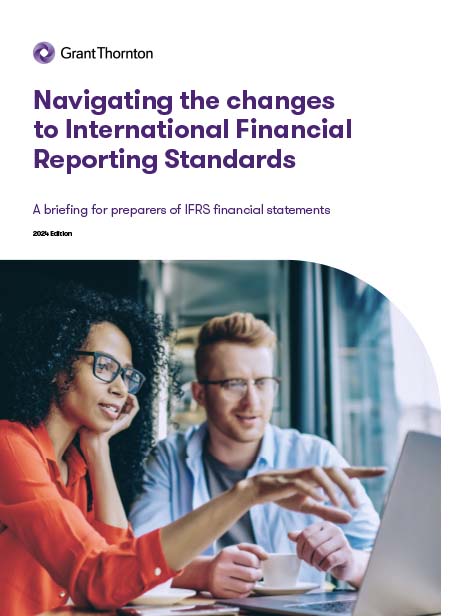-
Sector Focus
We specialise in the investment management industry offering audit, assurance, tax and corporate recovery and liquidation services.
-
Personal Tax Services
There are many tax rules that can affect you personally and therefore which will have an impact on your personal wealth.
-
QI Compliance
Qualified Intermediaries (QI) have to take action now to perform a Certification to the Internal Revenue Service (IRS).
-
Download our tax brochures
The tax teams at Grant Thornton aim to provide the Channel Islands with a premier tax advisory service both to private clients and the business community including the investment management industry.
-
Jersey Tax Return
A secure sign in page to file Jersey Tax Returns through the Grant Thornton tax portal.
-
ESG
ESG can either be seen as a risk management tool or an opportunity, either way it is imperative to your business, whatever your size and whether you are listed or not.
-
Professional Services
Business and accounting support for professional services
-
Finance Industry
We work with a broad range of clients and their financial stakeholders, from entrepreneurs in the early days to fast growing and established businesses to public companies competing in global markets.
-
Local Businesses
Businesses come in many shapes and sizes – from innovative start-ups to long-established local businesses. But however large or small your business, the chances are you face similar challenges.
-
Corporate Insolvency
Our corporate investigation, Guernsey liquidation and recovery teams focus on identifying and resolving issues affecting profitability, protecting enterprise value and facilitating a full recovery where possible.
-
Corporate Simplification
Redundant corporate entities can over complicate group structures and waste thousands of pounds in unnecessary costs each year. 46% of the c.15,500 companies controlled by the FTSE100 are dormant and it is estimated that the average cost of administering dormant companies is between £3,500 and £5,000 per company, per year.
-
Debt Advisory
Our Debt Advisory team provides commercial and financial debt advice to corporate entities and public sector bodies in a range of sectors. Our engagements include advice on stand-alone transactions and solutions or as part of an integrated business plan, in both the project and corporate arenas.
-
Exit Strategy Services
We offer a tailored methodology designed to enable a company to be reviewed in a group context to assess ways to maximise its value.
-
Financial Restructuring
For companies challenged by under-performance we work with management teams, shareholders, lenders and other stakeholders to implement financial restructuring solutions creating a stable platform for business turnaround.
-
Strategic performance reviews
Strategic performance reviews analyse the key drivers of performance improvement. Our specialists utilise a framework to evaluate financial and operational options and to identify solutions for businesses and their stakeholders.

The 2024 edition of the publication has been updated for changes to International Financial Reporting Standards (IFRS) that were published between 1 January 2023 and 31 December 2023.
The publication now covers 31 March 2023, 30 June 2023, 30 September 2023, 31 December 2023 and 31 March 2024 financial year ends.
How to use the publication
The effective dates table lists all the changes covered in the publication and their effective dates, it has been colour coded in the pdf to help entities planning for a specific financial reporting year end, and identifies:
- changes mandatorily effective for the first time
- changes not yet effective
- changes already in effect.
Where a change is not yet mandatorily effective for a particular year end, it may still be possible for an entity to adopt it early (depending on local legislation and the ability to be able to fully comply with all the requirements).
Where a change has been made but an entity is yet to apply it, certain disclosures are required to be made under IAS 8 ‘Accounting Policies, Changes in Accounting Estimates and Errors’. Disclosures required include the fact that the new or amended Standard or Interpretation has been issued but it has not yet been applied, and known or reasonably estimable information relevant to assessing its possible impact on the financial statements in the period of initial application.
Identifying the commercial significance of the changes in the publication
For each change covered in the publication, we have included a box on its commercial implications. These sections focus on two questions:
- how many entities will be affected?
- what will be the impact on affected entities?
A traffic light system indicates our assessment of the answers to these questions.






